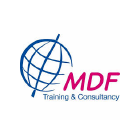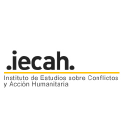WORKING WITH DG ECHO AS A UN AGENCY | 2014 - 2020
TRANSFER MODALITIES
BENEFICIARIES | CASH AND VOUCHERS
Article 11 of the General Conditions refers to beneficiaries as “persons or category of persons". While in most cases the beneficiaries of financial support will be individuals or households, if the decision to provide financial support to a community is well supported by a needs assessment and in line with the results, ECHO may accept it. In any case, in the Single Form, the partner must provide all the information foreseen in Article 11 of the General Conditions.
It has to be considered as voucher.
A Voucher has per its intrinsic nature a restriction on what can be purchased / exchanged for. Therefore if a voucher has a whatsoever restriction is and remain a voucher. It has to be considered cash only if it allows to retrieve money from an ATM or can be used to purchase whatever and whenever (unlikely).
ATTENTION! As discussed, some e-cards have wallets: some restricted (i.e. for food only) and some wallets whose amount can be cashed in an ATM. In this case, the partner should differentiate the two types of modalities.
Yes, at final report stage the partner should indicate the net amount actually reimbursed to the suppliers.
All the changes touching one of the mandatory information to be provided for cash transfers and value-based vouchers require a mutual consent procedure.
The risk levels associated with financial transfers are often associated with perceived risk rather than added risk compared to other aid distribution methods. Also depending on the precise distribution method used, different levels of safeguards exist. Distributing money by means of a bank transfer or a post office account may, in certain cases be less risky than a 'cash-in-envelope' scenario. The delivery option selected will necessarily be context-specific and partners should be able to demonstrate that they have duly considered the options available and to objectively justify the choice. In comparing available transfer modalities cost efficiency and effectiveness will be important, with the ability to achieve intended programme outcomes paramount. Depending on how the Action's objectives are framed, much of the risk may be more operational than financial. Where reputable financial institutions and established infrastructure exists in a country both donors and humanitarian organisations should strive to rely upon and support the use of existing structures.





